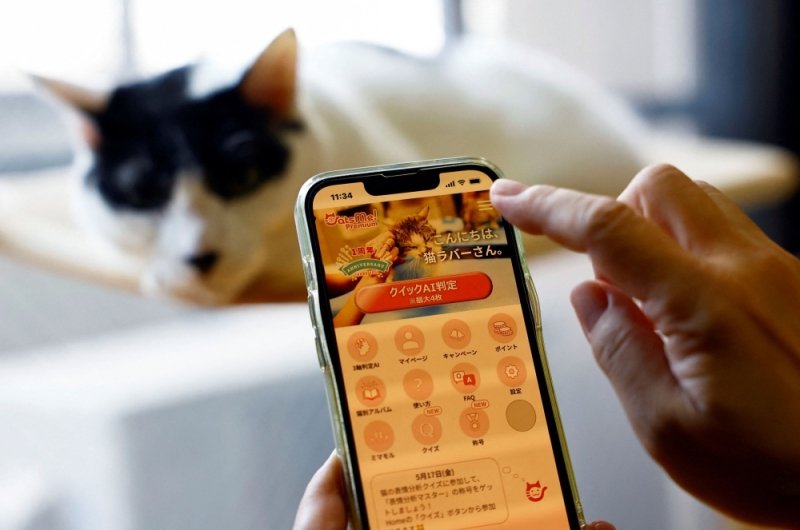Mayumi Kitakata is concerned about the health and well-being of her feline companion, Chi, who is around 14 years old. To ensure Chi enjoys as many healthy years as possible, Kitakata has turned to artificial intelligence for help. In March, she started using CatsMe!, an AI-driven smartphone application designed to detect when a cat is in pain, thereby reducing the need for stressful veterinary visits.
Kitakata, 57, has had several pet cats over the years and is determined to make Chi’s golden years as comfortable as possible. “He is at an age where more and more diseases are going to appear,” Kitakata explains. “Being able to consult the vet while reducing the number of hospital visits is very important for him and for me.”
Pets hold a significant place in many families worldwide, but in Japan, they have an even more pronounced role due to the aging population and declining birth rate. According to the Japan Pet Food Association, there were almost 16 million pet cats and dogs in the country last year, surpassing the number of children under 15. To address the needs of pet owners, tech startup Carelogy and researchers at Nihon University developed CatsMe! The app, which has been adopted by over 230,000 users since its launch last year, was trained on 6,000 images of cats and boasts an accuracy rate of over 95%. The developers anticipate this accuracy will improve as the AI continues to learn from more feline faces.
Nihon University professor Kazuya Edamura notes that while veterinarians can often tell if an animal is in pain, it can be challenging for pet owners. “Our statistics show that more than 70% of elderly cats have arthritis or pain, but only 2% actually go to a hospital,” Edamura says. “Rather than providing a final diagnosis, we use the app as a tool to help owners determine if their cat’s condition is normal or not.”
Kitakata and Chi live in a central Tokyo apartment with an ideal napping spot for Chi near a balcony window overlooking cherry trees. Kitakata keeps a close eye on Chi’s daily activities and uses the app to monitor his facial expressions.
Reflecting on her past experiences, Kitakata recalls Soran, a brown-striped tomcat who died of cancer six years ago at the age of eight. “If I had noticed it earlier, we might have been able to start cancer treatment sooner,” she says, her eyes welling with tears. “I might have been able to save him.” This experience drives her commitment to using technology to ensure Chi’s well-being.
READ MORE:
